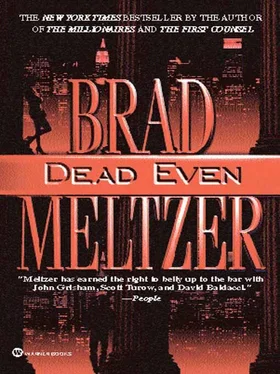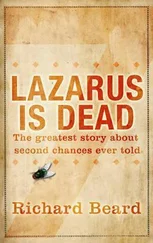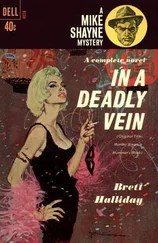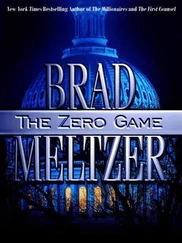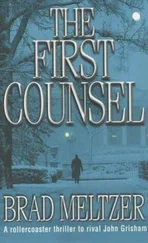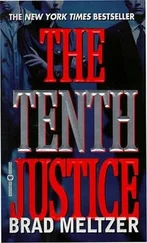“Is everything okay?” Sara asked as she entered the kitchen.
Jared nodded to his wife and turned his attention back to the phone. “Ms. Axelrod, I’ll have to call you back later. I don’t have those papers in front of me.”
“But-”
Jared hung up the phone. “What’s wrong?” Sara asked, assessing his expression.
“More problems with our insurance company,” Jared said as he again wiped his forehead. “Nothing to worry about.”
“Are you sure, because-”
“I’m sure,” Jared insisted. “They just messed up one of our claims. I can take care of it.”
Wandering up and down the narrow aisles of the neighborhood grocery store, Jared spent the early part of Saturday morning doing some not-so-necessary shopping. Over the past four days, he hadn’t once slept straight through the night. Regardless of how exhausted he was, he found himself waking up at three, four, and five o’clock in the morning. Always for the same reason – always to check on Sara. He was hoping that Saturday was going to be the day when he’d be able to sleep late and catch up on the lost hours. But when Sara’s alarm went off at eight o’clock, Jared was forced to face the day. He did everything in his power to lie in bed and keep his eyes shut, but again, it was no use. He couldn’t get the question out of his head: Are they going to take her? That was what he asked himself every morning, and that was all he cared about.
Unwilling to face the answer, Jared crawled out of bed. While Sara showered, he decided to run to the market. Fifteen minutes later, he headed home carrying two bags of groceries and half a dozen bagels. Walking past dozens of other New Yorkers who were carrying similar packages, Jared still couldn’t take his mind off his wife. She’ll be safe, he told himself. Otherwise, he’d have to-
His thoughts were interrupted by the shrill siren of an oncoming ambulance. With the traffic lights on its side, it flew down Broadway. When Jared first looked up, the ambulance was four blocks away. Seconds later, the ambulance was about to reach Eightieth Street – the block Jared and Sara lived on.
Don’t turn, don’t turn, please don’t turn, Jared whispered to himself as he stood on the corner of Seventy-ninth. All around him, people covered their ears to block out the deafening scream of the siren, but Jared didn’t notice. He was too focused on the ambulance. Especially when it turned down Eightieth Street.
The first thing he did was run. That was instinct. Clutching his bags, Jared darted up Broadway at the fastest sprint he could manage. Not Sara, he begged. Don’t let it be her. He was moving quickly, but for him, not fast enough. Without hesitation, he let go of the groceries and took off. He could hear the wail of the siren echo down the narrow street. When he turned the corner, he saw that the ambulance had stopped halfway down the next block, right in front of their apartment. “Sara!” he shouted. But as he took his first few steps down Eightieth Street, he saw the ambulance move farther down the block. It had stopped to inch its way past a double-parked car. And as it maneuvered past the obstacle and turned onto Columbus Avenue, Jared finally stopped running. It’s all right, he thought, standing there with his hands shaking. Sara was all right. She had to be.
With a confident stride and a commanding look in her eyes, Sara strolled across the grand jury room. “Ladies and gentlemen of the jury, you are here today to do one job – and that job is justice.”
“‘That job is justice ’?” Conrad interrupted as he sat in the front row of the jury box. “This isn’t a congressional hearing – we want these jurors to take you seriously.”
“I can’t help it,” Sara said, throwing her legal pad on the table in the front of the room. “Every time I get nervous, I start spouting clichés. All those years of bad movies are finally catching up with me.”
“Didn’t they teach you about juries in your old law firm?” Guff asked, seated next to Conrad.
“I told you, I did two trials in six years. We settled everything else.”
“Ah, the paralysis of passive resistance,” Guff said. “How I long for that stagnant touch.”
“Make another joke, and I’ll ram my stagnant touch straight up your stagnant-”
“Leave the boy alone,” Conrad interrupted. “Let’s get back to juries.” He stood up and moved next to Sara in the front of the room. “Whether you’re in a grand jury or a regular trial, juries are always about trust. If they trust you, they’ll take your side. If not, you lose. But there’s a difference between having a jury like you and having a jury convict for you. If you want a jury to vote against the accused, you need more than a few warm smiles and some smooth hand gestures.”
“So what’s the trick?”
“The trick is language,” Conrad said. “There’ll be anywhere from sixteen to twenty-three people on the grand jury. All you have to do is convince twelve of them that the facts justify a felony charge. They’re not voting to convict him; they don’t have to put him in jail. All they have to do is find reasonable cause to believe that Kozlow committed the crime. That’s a pretty low threshold, but it’s easy to get tripped up.”
“What do you mean by language? What do you have? Magic words?”
“You bet your stagnant ass we have magic words,” Conrad said. “Rule one: Never use the defendant’s name. Never call him Kozlow, or Anthony, or Tony. That humanizes him and makes it harder for the jurors to vote against him. Call him ‘the defendant,’ or ‘the accused.’ Rule two: Always use the victim’s name, the cop’s name, and the witnesses’ names. Ms. Doniger, Officer McCabe, Ms. Harrison. That makes them seem more human and believable. Rule three: Never use the actual words of the crime you’re charging the defendant with. In other words, don’t say, ‘He committed a burglary ,’ or ‘He committed murder .’ Those words sound scary to people, not to mention the fact that the jurors will start asking about all the elements of the crime before they’ll vote. To make it easier, say, ‘If you believe the accused stole from Ms. Doniger…’”
“And this really works?” Sara asked skeptically.
“In my nine years here, I’ve never lost in a grand jury,” Conrad said. “I may not win at trial, but I always get there. And I get there because I was taught to focus on the details.”
“And who granted you these pearls of wisdom?”
“The United States government,” Conrad said proudly.
“You were in the military?” Guff asked sarcastically. “No way. You’re so laid-back.”
“I gave them a three-year commitment, they put me through law school. But after three years, they force you out of the criminal side. When they told me I had to do boring civil stuff like wills and taxes and divorce work, I made the jump over here.”
“Love that combat zone, don’t you?”
“Can’t live without it,” Conrad said. “Now let’s get back to the point. Do you know what your game plan is?”
“I’m calling people in order of involvement. I’ll start with the cop, then Doniger, and then Harrison. Kozlow goes on last.”
“So Kozlow’s decided to testify?”
“He filed notice,” Sara explained. “I guess Jared figures he’ll make a likable witness. I’m hoping if he goes on last, the jury will have already made up their minds.” Pausing for a moment, Sara thought about the rest of her witnesses. Harrison was easily the best, since she was the only one who had seen Kozlow leave the house. But if she refused to testify, or even worse, denied that she had seen anything, Sara knew that Jared was right: The entire case was in trouble. Looking at Conrad, she continued, “One last thing – I know you won’t like this option, but if everything starts falling apart tomorrow, I have to think about dismissing it.”
Читать дальше
